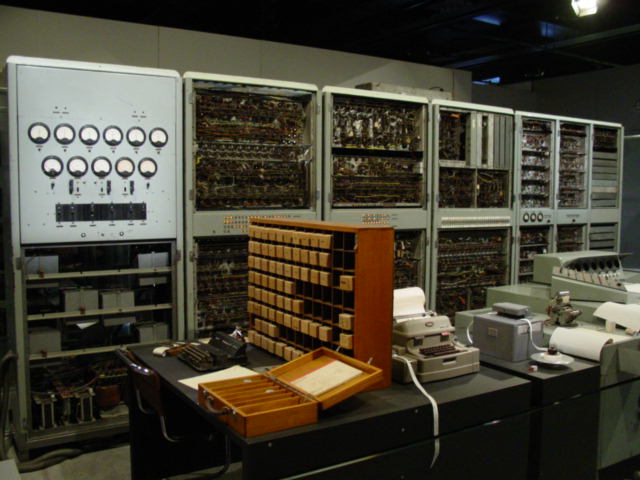
Experimental Music Studios
The Experimental Music Studios (EMS) is an organization or center for electroacoustic and computer music, focusing on synthesis and concert performance of art music,[1] founded by Lejaren Hiller at University of Illinois at Urbana-Champaign in 1958.
The "second electronic music studio developed in the United States",[2] and the "first formally acknowledged electro-acoustic facility in the United States" (since the Columbia-Princeton Electronic Music Center, "although formally acknowledged in 1959, had began [sic] in 1952"[3]) at an initial cost of $8,000, early equipment included an "old broadcasting studio control panel" as console, microphones, amplifiers, oscilloscopes, tape decks, and other donated items.[2] The studios received a $30,000 grant from Magnavox in 1962,[4] and a $53,100 grant from the National Science Foundation in 1965.[3] Directed by Scott A. Wyatt for forty years, it is currently directed by Eli Fieldsteel,[1] and consists of multiple studios.[5][6]
Alumni include Adrian Belew, Neely Bruce, Herbert Brün, Mary Ellen Childs, Insook Choi, Donnacha Dennehy, Robert Fleisher, Mara Helmuth, Elizabeth Hinkle-Turner, Ben Johnston, Salvatore Martirano, Larry Polansky, David Rosenboom, Carla Scaletti, James Tenney, David Ward-Steinman, David Weinstein, and Olly Wilson.[7] Composers who worked at the center between 1958 and 1975 include John Cage, Michael Colgrass, Kenneth Gaburo, Charles Hamm, and John Melby.[4]
Hiller created the MUSICOMP ("MUsic SImulator-Interpreter for COMpositional Procedures") programming language for music composition with Robert Baker in order to create their Computer Cantata (1963) at the studios.[8] MUSICOMP was used by Brün in generating his Non Sequitur VI (1966).[4] Composer James Beauchamp developed the Harmonic Tone Generator (a form of additive synthesis) at the studios.[4]